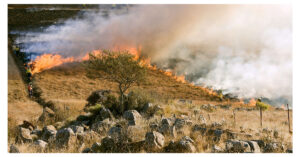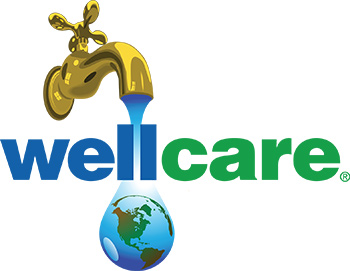 Returning home after a wildfire can be overwhelming and dangerous. We gathered some safety tips for re-entering a burned area and how to care for your well.
Returning home after a wildfire can be overwhelming and dangerous. We gathered some safety tips for re-entering a burned area and how to care for your well.
Tips for re-entering an area that has been affected by wildfires:
- Avoid damaged or fallen power lines.
- Be careful of ash pits (depression filled with hot ashes) and burned trees. Serious burns or injuries can occur.
- Wear protective gear before sifting through debris to avoid breathing in harmful dust or ash.
- Hazardous household materials like automotive fluids, paint, solvents, etc. should be disposed of properly to protect people and the environment.
- If you suspect electrical damage or gas leaks, do not try to use your electricity or anything with a flame. Instead, use a flashlight for your light source and report problems to your local utility. DO NOT stay in the home as there is a risk of electrical shock or explosion.
- If sewage is visible, limit access to the area and contact your local health department for assistance.
- Do not turn on the water if you notice damage to your wellhead or well components above ground. Contact a licensed well contractor to assess and repair damages.
After a wildfire, underground well components like the pump may not be harmed. However, if your home and yard have been burned, it is necessary to complete a visual inspection of your well system and have any damage repaired before turning on the water.
Check the following for damage:
- Wellhead– casing, cap or seal, and any other above ground piping
- Tank– pressure or storage tanks (cisterns)
- Electrical– wires and control box
- Treatment– filters/housing, tanks, chemicals
Contact a licensed well contractor immediately for repairs. Shock chlorination or disinfection should be performed after repairs are made. Your well contractor will determine if this is required. It is important to note that shock chlorination/disinfection will not remove metals, pesticides, or other types of non-biological contamination. Do not drink or cook with the water until a water test is performed and confirms no harmful contaminants are in your water.
Download our wellcare® information sheet on Wildfires & Wells from our website to continue reading about water testing and caring for your water treatment and septic systems after a wildfire.
